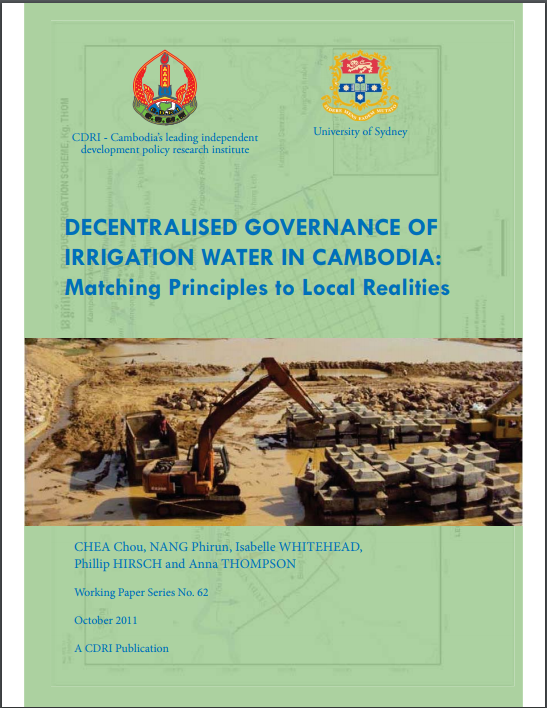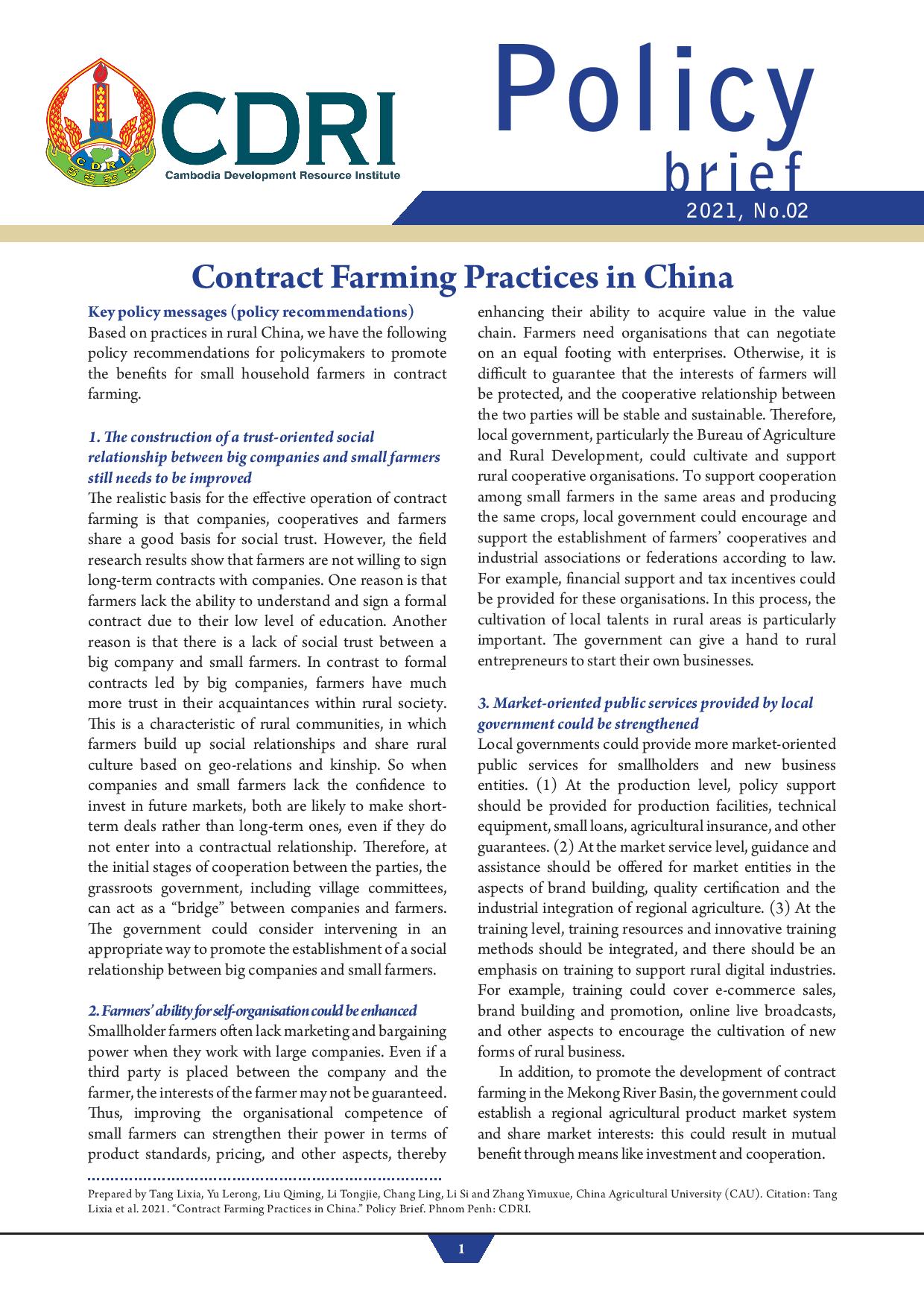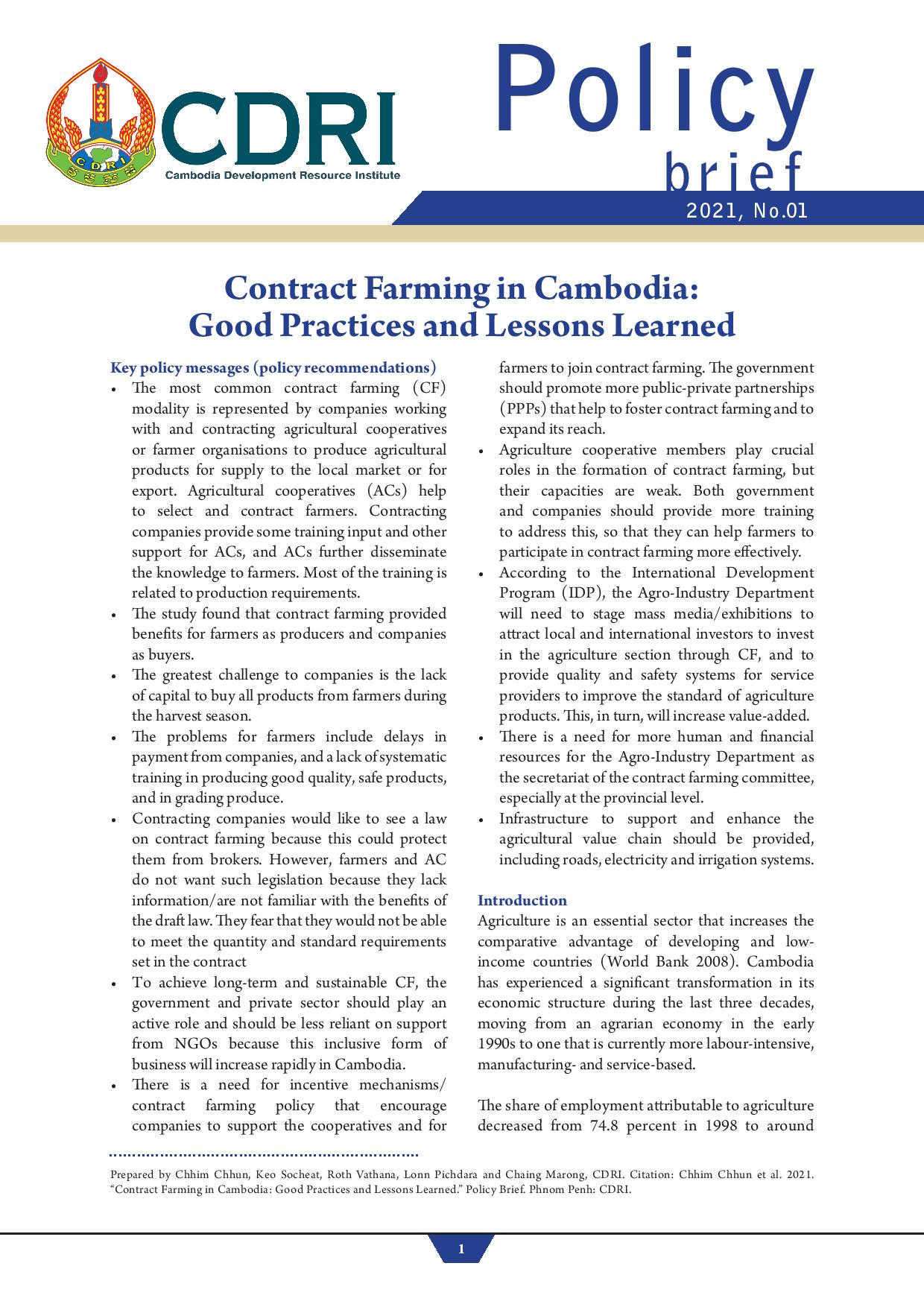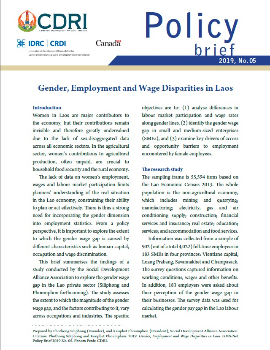
Decentralised Governance of Irrigation Water in Cambodia: Matching Principle to Local Realities
Keyword: Irrigation governance, participatory irrigation management, farmer water user communities, integrated water resources management, institutional adaptation and policy reform
Khmer PDF (3)
Abstract/Summary
Cambodia is
currently embarked on a significant programme of irrigation development. The
technical design of irrigation projects has generally improved, but there
remain a number of challenges in the governance of irrigation that inhibit the
schemes from working effectively, equitably and sustainably. This study
investigates the extent to which the governance of irrigation matches the
requirements of diverse irrigation schemes through detailed ethnographic study
of three schemes: Rolous and Stung Chinit in Kampong Thom province and Damnak
Ampil (DAP) in Pursat province. Specifically, it investigates (1) the degree of
match between the governance arrangements and requirements imposed by the
physical configuration of these schemes, and (2) ways in which stipulated
governance arrangements have been modified in response to local requirements.
The study found
discrepancies between actual governance practices and the ideal governance
principles, as outlined in Participatory Irrigation Management Development
(PIMD) and Integrated Water Resources Management (IWRM), and the spatial and
infrastructural context of the schemes. Specifically, it was observed that the
scale of the command areas is beyond the scope of Farmer Water User Community
(FWUC) members and activists who do not have adequate technical knowledge or
finances to repair, develop, and maintain irrigation infrastructure across
their respective schemes. Second, the actual practice of irrigation management
at the scheme and sub-scheme level diverges significantly from the principles
of PIMD and IWRM. For example, the actual roles of the FWUCs fall short of
those stipulated in their mandate and are not particularly well-executed.
The strongest role
of the FWUCs across different case-study schemes is that of a mediator between
farmers and PDOWRAM, rather than their principal mandate of competently
managing the schemes. The FWUCs also have a role in allocating water from
primary and secondary canals, resolving minor conflicts between farmers within
the community, and collecting Irrigation Service Fees; however, the execution
of these tasks is inconsistent and often lacking. The findings conclude that
the current governance arrangements deviate from both the requirements imposed
by the physical configuration of the schemes and the idealised theoretical
governance purported in the PIMD policies. The study then suggests that to fix
the problems, changes need to be made to policy and FWUC mandates as well as to
the governance structure to provide more support to FWUCs and to adapt them to
be more closely aligned with existing governance frameworks.



